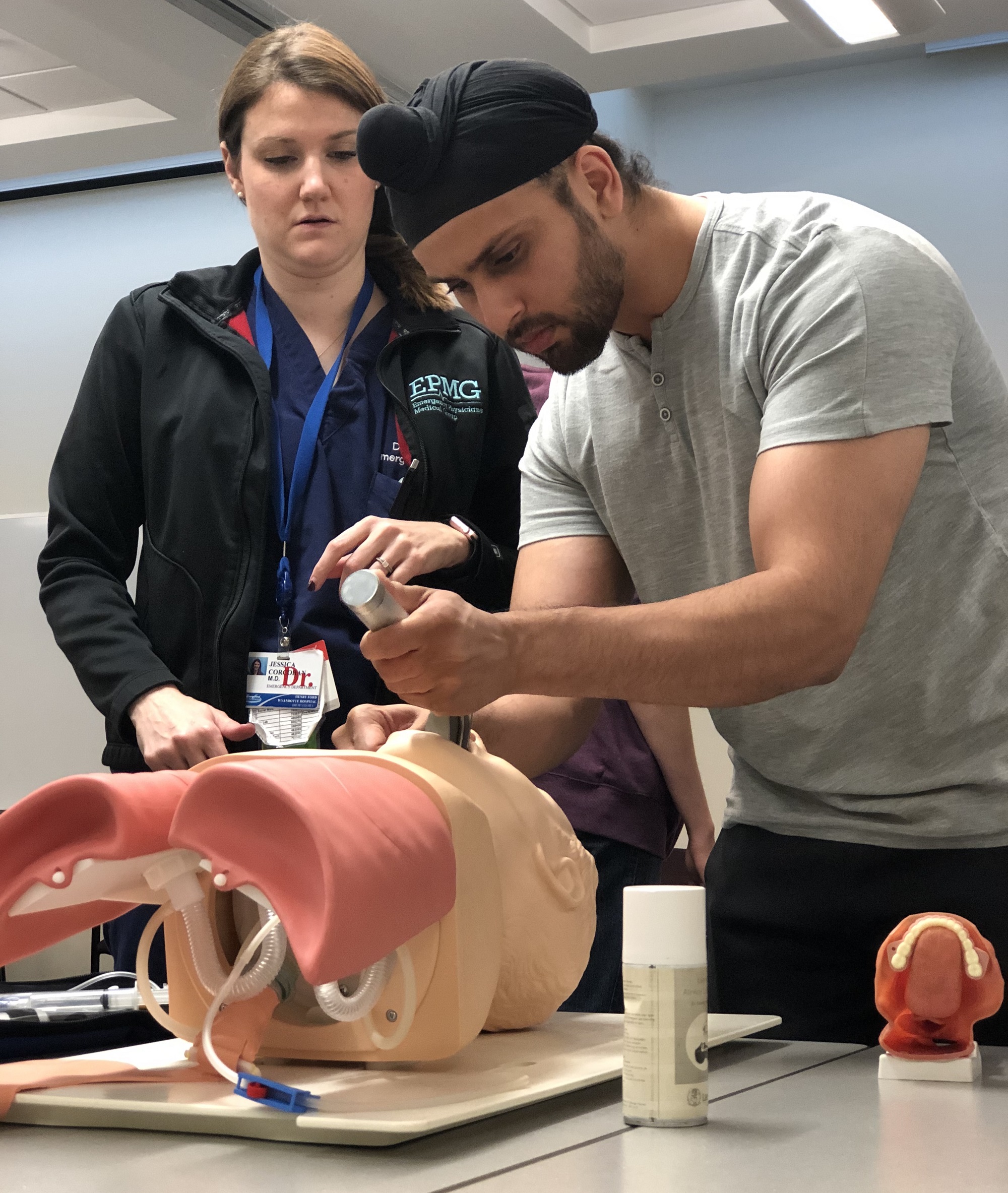The Wayne State University School of Medicine’s Emergency Medicine Interest Group has won the Emergency Medicine Residents’ Association’s inaugural Great Lakes Region EMIG of the Year Award, and was selected first runner-up for the inaugural National EMIG of the Year Award.
The award recognizes exemplary Emergency Medicine interest groups across the country.
“We are very excited to have our EMIG recognized both nationally and regionally,” said WSU medical student Chelsea Johnson, a board member and coordinator who helped submit the award application. “Given that Emergency Medicine saw many of its beginnings in Michigan (Detroit Receiving Hospital’s Emergency Medicine department pre-dates the medical specialty’s founding for example), we are proud to be awarded this title.”

The EMRA Medical Student Council developed the award because the interest groups represent an essential meeting ground for students, residents and faculty “with a shared excitement for emergency medicine.”
“Emergency Medicine Interest Groups are the primary avenue for students to gain exposure to Emergency Medicine,” EMRA Medical Student Council Chair Corey McNeilly said. “EMRA wants to encourage the amazing programming and work they do by providing recognition on a national scale.”
At WSU, “there is an extraordinary amount of communication and continuity between our medical students and our Emergency Medicine faculty,” Johnson said. “We offer shadowing at Detroit Receiving Hospital 24 hours a day, Monday through Saturday. This allows any School of Medicine student considering EM to get a close, personal look at the field. We are also lucky to have EM physician leaders volunteering at our events, including Emergency Medicine Chair and Professor Brian O’Neil, M.D, and Sinai Grace EM Program Director Marc-Anthony Velilla, M.D.
The award was based on several categories, including leadership, total EMRA members, local events, community outreach, members serving in local, state, regional and national leadership positions, attendance at conferences, posters and presentations by members, publications by members and policy/resolution writing by members.
“Many of our EMIG members have been highly involved with social outreach programs, public policy, and academic research. Having an EMIG rich in publications was also one of the deciding factors for EMRA,” Johnson added.
Local events hosted by the group include:
• A residency director panel to assist students in learning more about the residency application process. The group hosted residency directors from the University of Michigan, Henry Ford, Henry Ford Emergency Medicine/Internal Medicine, and Detroit Receiving, Sinai-Grace, St. John, Beaumont and Providence hospitals.
“I believe that their willingness to come speak at our school speaks to the strength and caliber of our medical students and our EMIG,” Johnson added.
• The Wayne State EMIG Skills Night on campus attracted 80 medical students. With the help of residents and attending physicians from the Detroit region, students learned chest tube placement, ultrasound-guided intravenous placement, intraosseous placement, intubation, suturing, splinting and lumbar puncture. Advisor and Assistant Professor of Emergency Medicine Sarkis Kouyoumjian, M.D., led a code simulation for Year 1 and Year 2 students.
• The Meet the Matched event gave Year 1, 2 and 3 students the opportunity to hear about the Emergency Medicine match process. Newly-matched Year 4 students discussed their experience with the residency application process, interviews, rankings and other application statistics.
Regionally, during the St. John Hospital Skills Night, students from the WSU interest group attended an annual skills night hosted by St. John Hospital. Forty students from Wayne State, Michigan State, Oakland and Central Michigan medical schools attended the event, practicing several procedures. At the Beaumont Hospital Skills Night, 50 students from Wayne State and Oakland University William Beaumont medical schools joined to practice procedures, including starting IVs, suturing, performing focused assessment with sonography in trauma exams and intubating.
“I have to emphasize that none of these events would have been possible without the support we received from our advisor, Dr. Kouyoumjian and from the many residents and faculty at Detroit-area Emergency Medicine residency programs who willingly volunteered their time with us,” said Aaron Sherwood, Class of 2021.